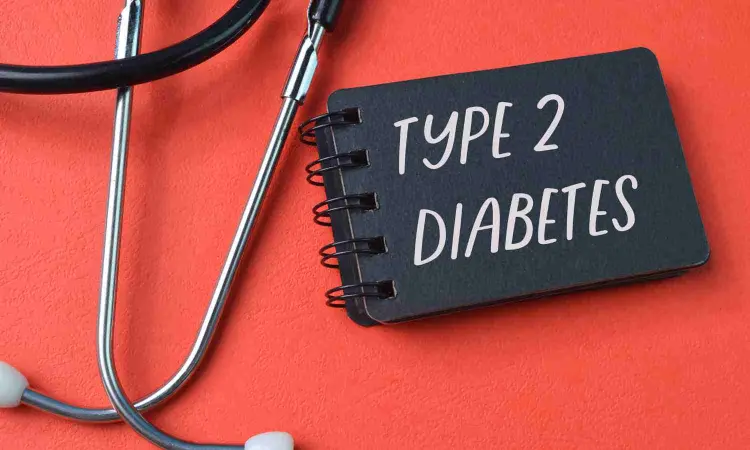- Home
- Medical news & Guidelines
- Anesthesiology
- Cardiology and CTVS
- Critical Care
- Dentistry
- Dermatology
- Diabetes and Endocrinology
- ENT
- Gastroenterology
- Medicine
- Nephrology
- Neurology
- Obstretics-Gynaecology
- Oncology
- Ophthalmology
- Orthopaedics
- Pediatrics-Neonatology
- Psychiatry
- Pulmonology
- Radiology
- Surgery
- Urology
- Laboratory Medicine
- Diet
- Nursing
- Paramedical
- Physiotherapy
- Health news
- Fact Check
- Bone Health Fact Check
- Brain Health Fact Check
- Cancer Related Fact Check
- Child Care Fact Check
- Dental and oral health fact check
- Diabetes and metabolic health fact check
- Diet and Nutrition Fact Check
- Eye and ENT Care Fact Check
- Fitness fact check
- Gut health fact check
- Heart health fact check
- Kidney health fact check
- Medical education fact check
- Men's health fact check
- Respiratory fact check
- Skin and hair care fact check
- Vaccine and Immunization fact check
- Women's health fact check
- AYUSH
- State News
- Andaman and Nicobar Islands
- Andhra Pradesh
- Arunachal Pradesh
- Assam
- Bihar
- Chandigarh
- Chattisgarh
- Dadra and Nagar Haveli
- Daman and Diu
- Delhi
- Goa
- Gujarat
- Haryana
- Himachal Pradesh
- Jammu & Kashmir
- Jharkhand
- Karnataka
- Kerala
- Ladakh
- Lakshadweep
- Madhya Pradesh
- Maharashtra
- Manipur
- Meghalaya
- Mizoram
- Nagaland
- Odisha
- Puducherry
- Punjab
- Rajasthan
- Sikkim
- Tamil Nadu
- Telangana
- Tripura
- Uttar Pradesh
- Uttrakhand
- West Bengal
- Medical Education
- Industry
Diabetes independent risk factor for low back pain, disc degeneration: Study

A recent study published in the PNAS Nexus explored how diabetes affects the biomechanics of intervertebral discs that can offer crucial insights into spinal health. This study utilized advanced imaging techniques to investigate the behavior of collagen within the discs to uncover significant implications for both understanding disease mechanisms and developing potential treatments.
Synchrotron small-angle X-ray scattering was used to examine how alterations in collagen behavior contribute to changes in the ability of discs to resist compression. This research focused on comparing the discs of lean Sprague-Dawley rats to those of diabetic obese University of California Davis type 2 diabetes mellitus (UCD-T2DM) rats.
The research team identified two primary mechanisms discs from lean rats that enable resistance to compression at the nanoscale with the rotation of collagen fibrils within the annulus fibrosus and straightening and stretching of these fibrils. In discs from diabetic rats, both mechanisms were significantly impaired.
The study also revealed a 31% reduction in fibril rotation and a 30% decrease in collagen fibril strain in diabetic rat discs when compared to lean counterparts. This impairment was attributed to a stiffening of collagen fibrils that was evidenced by a 31% higher concentration of nonenzymatic cross-links in discs from diabetic rats.
Also, diabetic rat discs displayed earlier onset plastic deformations, like the fibril sliding and fibril-matrix delamination which indicates a compromised ability to withstand compression over time. These findings enables with understanding disc degeneration associated with aging and diabetes. The study paves way for targeted interventions to preserving spinal health by elucidating the key deformation mechanisms involved in whole-disc compression and highlighting how diabetes disrupts these processes.
Source:
Rosenberg, J. L., Schaible, E., Bostrom, A., Lazar, A. A., Graham, J. L., Stanhope, K. L., Ritchie, R. O., Alliston, T. N., Lotz, J. C., Havel, P. J., Acevedo, C., & Fields, A. J. (2023). Type 2 diabetes impairs annulus fibrosus fiber deformation and rotation under disc compression in the University of California Davis type 2 diabetes mellitus (UCD-T2DM) rat model. In D. Discher (Ed.), PNAS Nexus (Vol. 2, Issue 12). Oxford University Press (OUP). https://doi.org/10.1093/pnasnexus/pgad363
Neuroscience Masters graduate
Jacinthlyn Sylvia, a Neuroscience Master's graduate from Chennai has worked extensively in deciphering the neurobiology of cognition and motor control in aging. She also has spread-out exposure to Neurosurgery from her Bachelor’s. She is currently involved in active Neuro-Oncology research. She is an upcoming neuroscientist with a fiery passion for writing. Her news cover at Medical Dialogues feature recent discoveries and updates from the healthcare and biomedical research fields. She can be reached at editorial@medicaldialogues.in
Dr Kamal Kant Kohli-MBBS, DTCD- a chest specialist with more than 30 years of practice and a flair for writing clinical articles, Dr Kamal Kant Kohli joined Medical Dialogues as a Chief Editor of Medical News. Besides writing articles, as an editor, he proofreads and verifies all the medical content published on Medical Dialogues including those coming from journals, studies,medical conferences,guidelines etc. Email: drkohli@medicaldialogues.in. Contact no. 011-43720751


